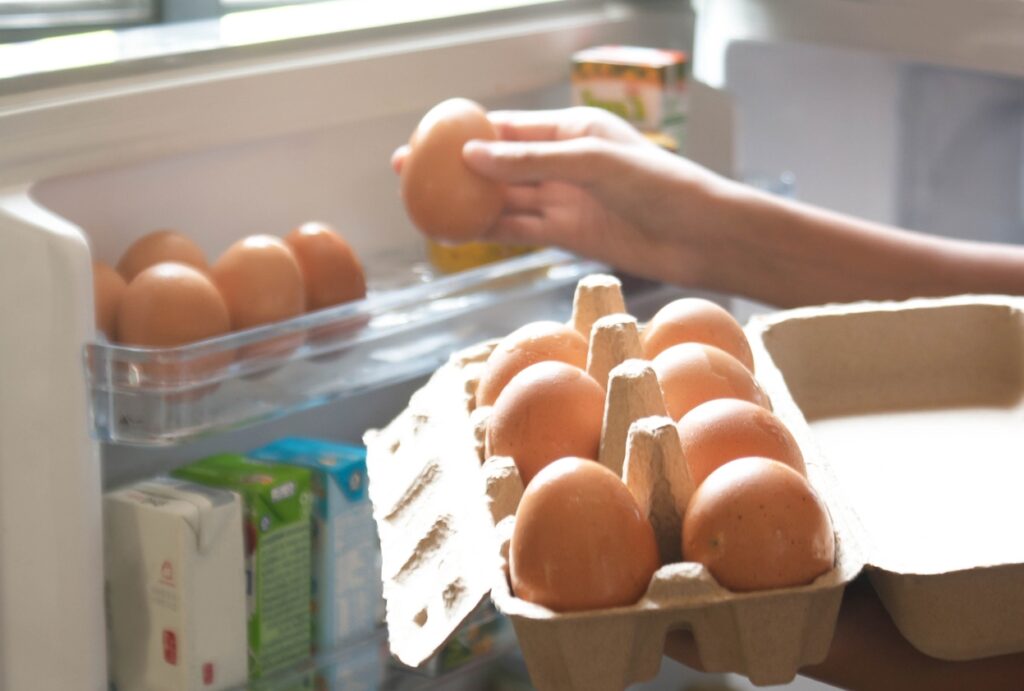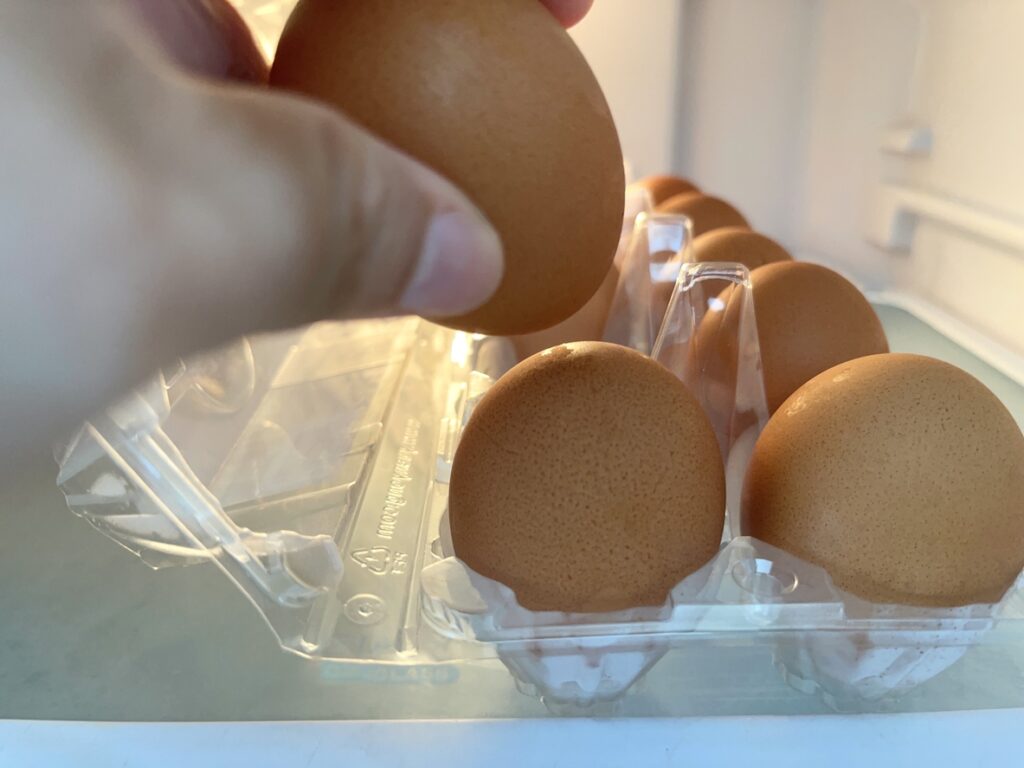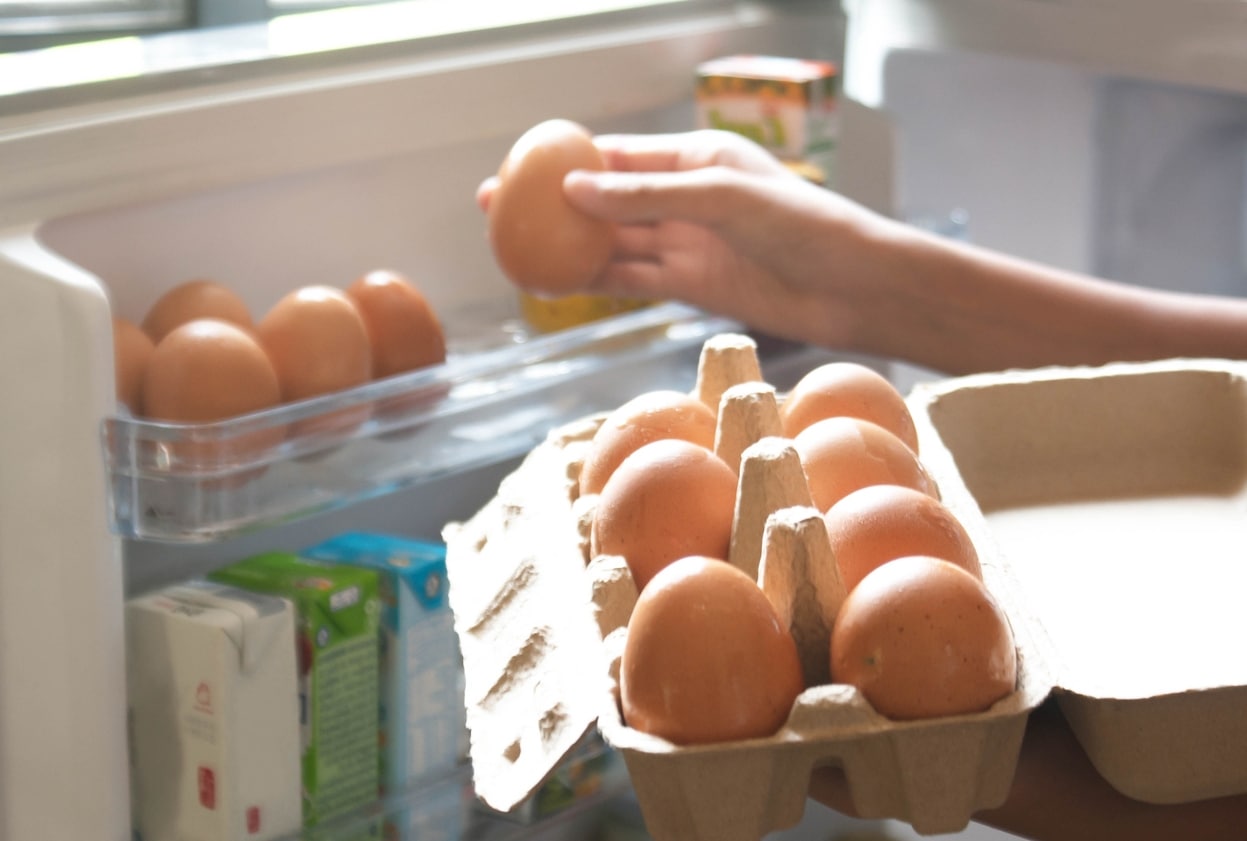Finding out how long eggs are good for is a great way to ensure that everyone stays safe and healthy. So, don’t overlook unusual traits and qualities.
Whether you collect eggs from your chicken or buy them from the grocery store, it’s important to know how long they last and how to tell if they’ve gone bad. Here are some tips for detecting bad eggs.
Do Eggs Go Bad?

Yes, like most foods, eggs go bad. Luckily, it’s not hard to detect a bad egg, so it’s unlikely that you’ll eat one.
Yet, the biggest risk of eating expired eggs is getting infected with Salmonella. If this happens, you might experience vomiting, diarrhea, and a fever. So, it’s best to be cautious when choosing which eggs are safe to eat.
How to Tell if Eggs are Bad
If an egg is rotten, an unpleasant odor should give it away. They may also turn black and gooey. It usually takes a long time for an egg to end up in that state though, so how do you know if an egg has recently gone bad?
The first thing you should check is the expiration date. If you got the eggs from your own chickens, they won’t have an expiration date, but there are some other ways to tell. Examine the egg’s appearance and odor. If the shell is cracked, slimy, or powdery, throw the egg away. Expired eggs will have an unusual stench.
You can also perform an egg float test to see if the eggs are good or not. Eggs that sink to the bottom of water are fresh. If they float, even if it’s only a little bit, they should be disposed of. You can also hold a flashlight to an egg to see how fresh it is. Fresh eggs will have an air cell thinner than 1/8 inch. The larger the air pocket, the older they are.
How Long Are Eggs Good For?

Eggs are perishable food items that need to be stored in the refrigerator. Whole eggs will last several weeks after their purchase date. Raw whole eggs can last 4 to 5 weeks past the expiration date if kept in a fridge that’s between 35 and 40 degrees Fahrenheit.
However, the amount of time food is good for varies based on how its stored. Here are some examples of how long types of eggs last in the refrigerator:
- Raw whole eggs (in shell) – 3 weeks after purchase, 4 to 5 weeks after expiration date
- Raw whole eggs (slightly beaten) – 2 days
- Hard-boiled eggs (in shell) – 1 week
- Hard-boiled eggs (peeled) – 1 day
- Raw egg whites – 4 days
- Raw egg yolks – 2 days
How Long Do Eggs Last if Unrefrigerated?
Leaving eggs in a room temperature area isn’t recommended. You may be able to leave them out for 2 to 3 weeks before they go bad, but they won’t be as fresh or healthy for human consumption.
Eggs that aren’t refrigerated will have a larger air sac, the egg whites might be clear, and the egg yolk could be runny. These are all signs that the egg isn’t as nutritious as it should be. So, it’s best to refrigerate them or find another method to store them.
Best Ways to Store Eggs

Putting eggs in the refrigerator is the most common way to store them, but there are plenty of ways to help them last longer. Some methods might even preserve them for over a year! Let’s take a look at what your options are.
Freeze
For families that want to store their eggs for longer than a few weeks, freezing eggs is a great option. An easy way is to store them in a muffin tin or ice cube tray. First, you can crack them into a bowl, then lightly scramble them before pouring them into the container. Then, you can freeze them, which can make them last for about a year.
It’s not recommended to freeze raw eggs still in the shell or hard-boiled eggs. But raw whole eggs that are slightly beaten, egg whites, or egg yolks can last for up to a year if frozen.
Dehydrate
Eggs are easiest to dehydrate if they’ve been scrambled. You can whisk them together, scramble them, and then put them into the dehydrator. A recommended setting is dehydrating them at 145 degrees for 18 hours.
Dehydrating raw eggs isn’t a good idea because the temperature isn’t high enough to remove the salmonella risk. If stored in airtight containers, the food could last as long as 5 to 10 years.
Preserve in Mineral Oil
Coating your eggs in food-safe mineral oil is another way to help them last. All you have to do is coat the outside and then put the eggs back in their refrigerated container. This method can make them last for about 9 months.
Freeze Dry
If you have a freeze dryer, this is another great way to make foods last for years and years. You can whisk raw eggs, freeze dry them, and then use them for lots of unique recipes. Freeze dried scrambled eggs could last for 10 to 15 years! They should be kept in a cool, dry place without oxygen.
Pickling
Pickling eggs is a unique preservation method because it will add an interesting taste to the eggs. To pickle foods, you need to set them in a liquid solution that includes water, vinegar, salt, and sugar. Small eggs need to sit for 1 to 2 weeks to be fully pickled while larger ones might take an extra week or two.
When these objects are pickled, they tend to last 3 to 4 months. They should be kept in a jar with a tightly sealed lid.
Final Thoughts
Eggs don’t last a long time, but if stored properly, their shelf life can be greatly extended. Whether you buy eggs from the store or get them from your hens, it’s a good idea to store them in the fridge as soon as possible.
If you have chickens that halt their egg-laying in the winter, then finding ways to make the eggs last longer can help you have healthy eggs year-round. So, be mindful of how long the eggs last for, and if anything seems off, don’t hesitate to throw them out.
